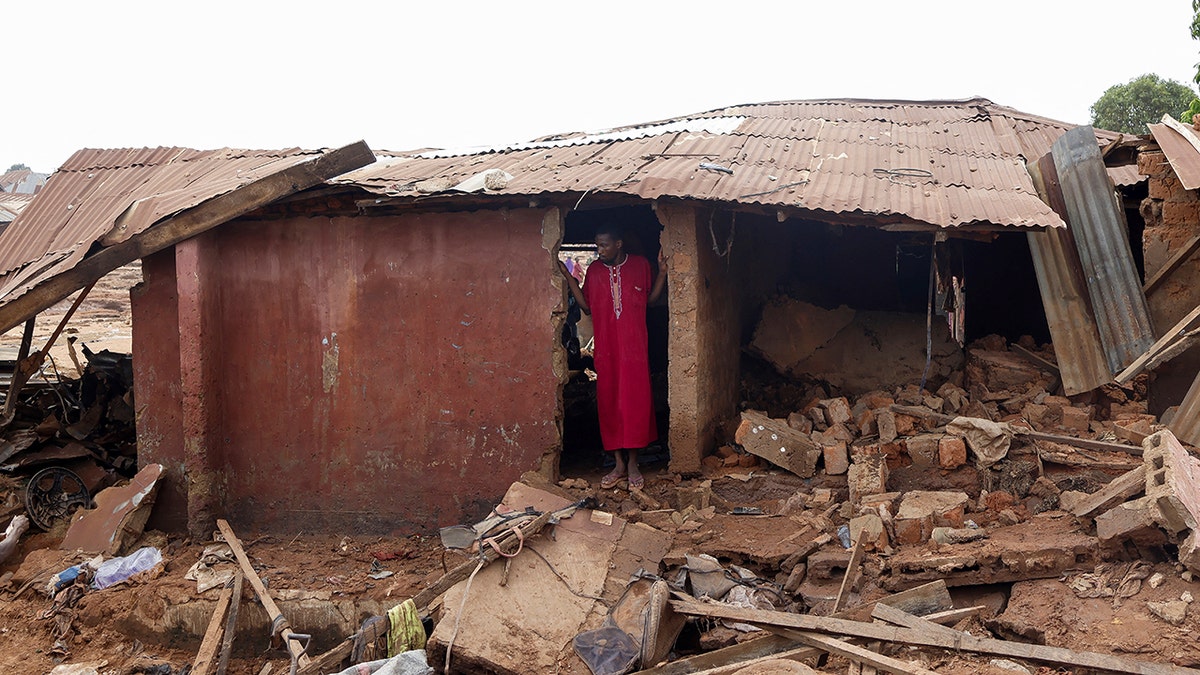Officials said on Friday that the torrential rains had previously launched floods have killed at least 111 people in the market of the market, where the North Nigerian farmers sell their tools to merchants from the south.
The Nigerian hydrological services Agency immediately did not determine the amount of rain after midnight on Thursday in the town of Mochaa in the state of Niger, more than 180 miles west of Abuja, the capital of the most populous African nation.
He met southeast of dangerous floods while arches northeast of snowstorms
Societies in North Nigeria suffer from long droughts that have been exacerbated by climate change and excessive rainfall that leads to severe floods during the short wet season.
In videos and photos on social media, flood water covered neighborhoods and homes, with their roofs barely visible over brown water. Water perimeter, residents tried to save what they can, or save others.

Someone looks at his collapsed home after the floods that forced several thousand of their homes in Moca, Niger State, Nigeria, May 31, 2025. (Reuters/Strenger)
“We have lost many lives, property, our agricultural products. Those who have their storage have lost it,” said Kazim Mohamed, a resident of Mocoa.
Besides 111 dead, “more bodies have been brought and have not been calculated yet,” said IIBRAHIM Audu Husseini, a spokesman for the Associated Press on the phone on Friday afternoon.
Mokwa, about 380 km (236 miles) west of Abuja, is a major meeting point where merchants from the south buy pills, onions and other foods from farmers in the north.
The leader of the Mokwa Society, Aliki Moussa, told AP that the villagers are not accustomed to such floods. Moses said: “The water resembles the spiritual water that was coming, but it is my season.” “It can now come (and) will reach another twenty years before coming again.”
The head of the local Mocoa government, Jibr Moreji, told the local news site that the construction of flood control has been late for a long time.
Click here to get the Fox News app
“This critical infrastructure is necessary to alleviate the risk of future floods and protect lives and property,” he said.
In September, heavy rains and the collapse of the dam in the northeastern city of Medoguri caused severe floods that left at least 30 people dead and displaced, which increased the human crisis caused by the Boko Haram rebellion.